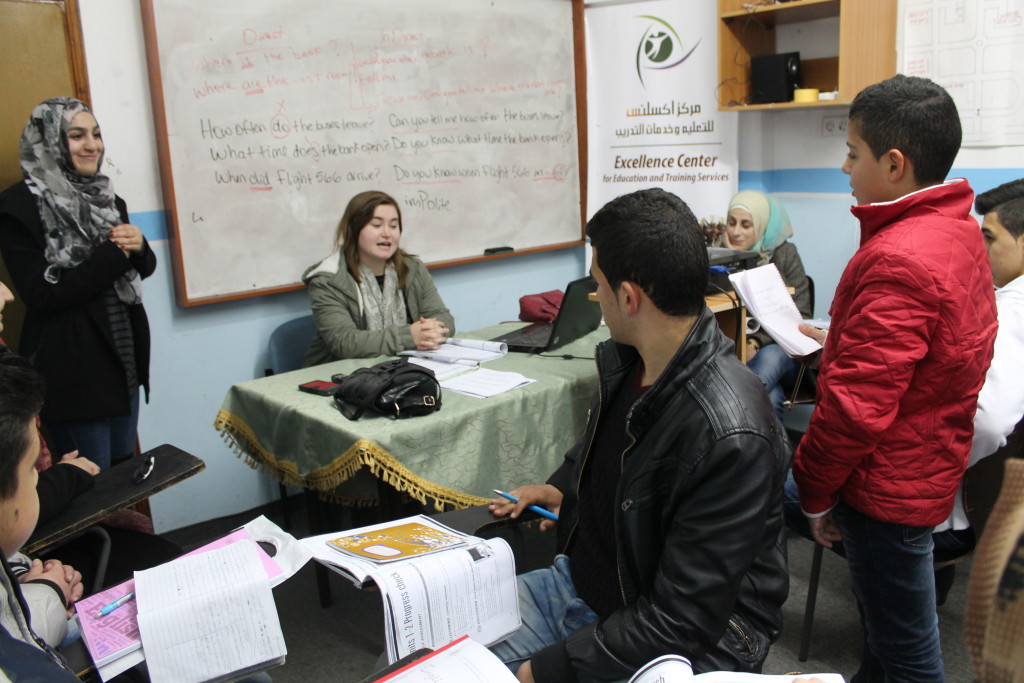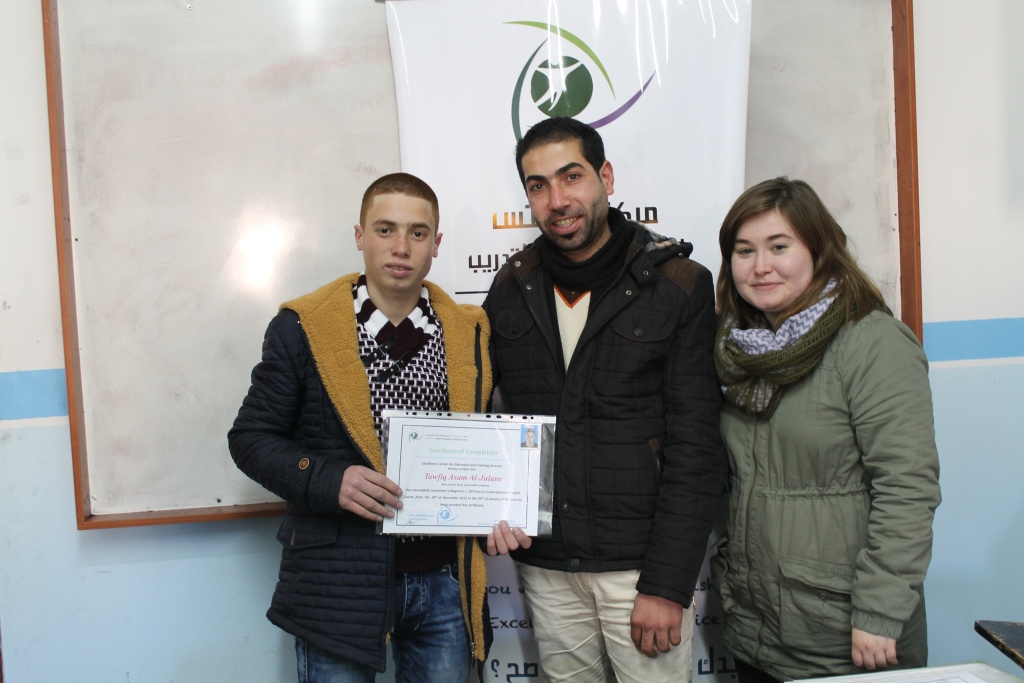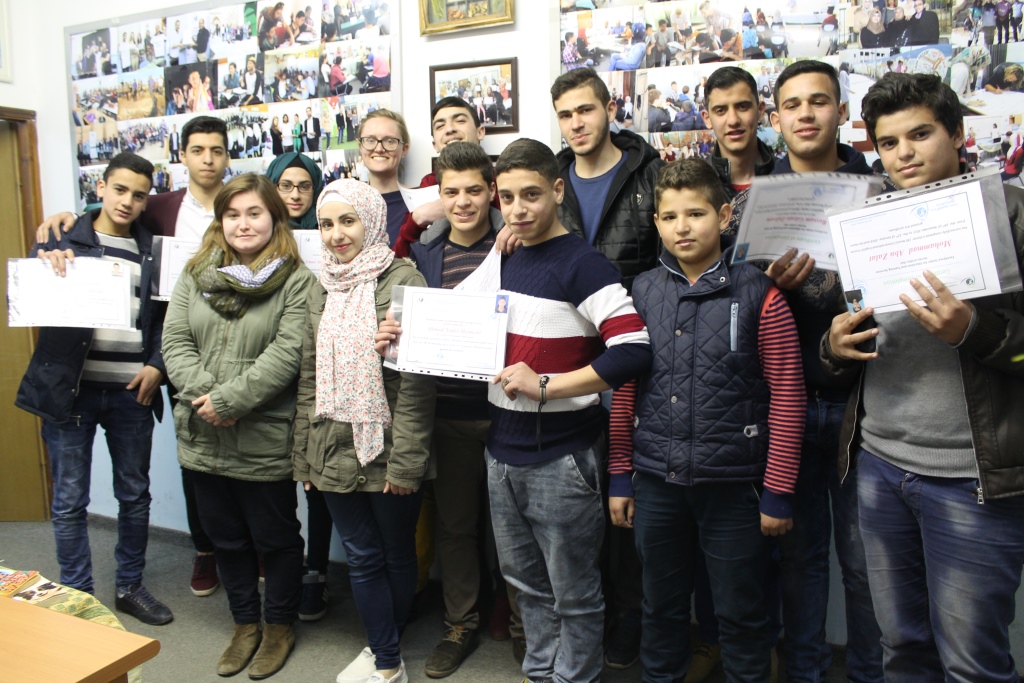
Before I go further, I feel like I should give some context to my journey. I’m a twenty-three year old American university student hailing from a frigid midwestern state. I’ve travelled around my country, though not extensively by any means, and rarely alone. I’m used to a life surrounded by people and things that I know. So what made me want to leave all that behind, for the stress of an entirely new place?
Surprisingly, the actual journey to Palestine wasn’t as stressful as I thought it would be. I tried to stay organized in the weeks leading up to my trip, making preparations little by little. Every time I went out, I would pick up a few things that I needed for the trip, and I tried to get all my documents in order well before my departure date. I did as much as I could to make things as easy as possible, downloading offline maps and translation dictionaries onto my phone.
The trip from Minneapolis to Tel Aviv was pleasant enough. When it came time to head to the departure gate, some of the excitement of the journey had worn off; a near sleepless night before had caught up with me, and the prospect of a peaceful rest on the flight sounded amazing (if you’ve ever tried to sleep on a long flight, you know how ridiculous that notion was). Much to my dismay, I had an aisle seat. My one piece of advice for a long flight: get a window seat. Seriously! It’s a lot easier to sleep with something to lean on.
I was dead tired when I arrived at Ben Gurion. As I made my way to passport control, I mentally prepared myself for a grueling interview by security on why I was headed to the West Bank. This was probably the most stressful part of the trip; I had heard a couple horror stories from friends and the internet about the rigor of these interviews, but it turned out that my fears were totally unfounded. The lady at the counter asked me a few quick questions about my stay and my father’s name, and suddenly I was outside looking for a sherut. I had made it across an ocean, and I had done it alone.
Over the next three weeks, I would learn that travelling alone comes with a slew of benefits. It forces you to dive headfirst into the culture and language of the place you’re visiting. You are bombarded with new information: new foods, new sights, and new experiences. Almost every moment is an opportunity to learn. The time you’ll spend with anyone who speaks your language fluently is minimal, which is extremely motivating when it comes to learning a new language. Navigating a society where you don’t speak the local tongue can be stressful, but the vast majority of people in Palestine I’ve encountered have been incredibly kind, waiting patiently as I stumbled through a new word or phrase.
Living with a Palestinian host family, I’m submerged in Palestinian culture 24/7. I get to see how Palestinians live, what their values are, how they feel about the world around them-and best of all, I get to be a part of it. In the middle of my third week here, I went with my host family to a lively resort park up in the hills on the outskirts of Hebron. It had rides and stands, and a gorgeous view of the valley below. Looking around, I could see children and adults alike laughing and smiling as they ran from ride to ride. It’s amazing to observe the differences between Palestinian and American culture, but it’s even more amazing to see the similarities. As we all stuffed into the car afterward, I really did feel like a part of the family.
At the Excellence Center, I get to engage with a multitude of perspectives from Palestinians of all different backgrounds. Sometimes it’s easy to use “culture” as a catch-all term, but my time spent at the Center thus far has taught me that culture can manifest itself in so many ways. Everyone has their own story to tell.
I’ve also had the opportunity to meet a number of internationals at the Center. In addition to being fascinating individuals, they’re also a fantastic resource for advice on living in Palestine as a foreigner, as they understand exactly how it feels to be alone in a strange country.
Even though I’m alone, I feel very secure in Hebron. I take precautions to make sure my passport and cash are hidden away when I’m out and about, but I haven’t had any reason to fear for my safety, even when walking alone at night. Speaking as a woman coming from a country where street harassment is fairly common, I’m pleased to say that I haven’t been harassed in the three weeks that I’ve been in Palestine. If I have any doubts or questions about anything, I ask my colleagues at the Excellence Center, who are always more than happy to help.
Another amazing benefit of travelling alone to Palestine is how much it strengthens you as a person. It forces you out of your comfort zone.You’re faced with challenge after challenge, from trying to tell your Arabic-speaking taxi driver where to go, to being surrounded by new faces every day. I remember the first time I stepped into what’s now my favorite shawarma restaurant and struggled to order a sandwich with the few words of Arabic I had, and the feeling of accomplishment when I was handed a sandwich. Each time you overcome an obstacle, you feel more confident in your ability to handle future challenges.
If you’re by yourself, it’s also a lot easier to escape your preset notions of what normal is. You don’t have anyone to accidentally influence or reinforce your preconceptions about the world around you; you can look at things as they are and work through them on your own, letting only the opinions of the people who are part of the culture affect you. Coming from America, a country whose media steeps its citizens in a near-constant barrage of anti-Islamic rhetoric, this was especially important.
Although it can be daunting and uncomfortable at times, travelling to a country with a culture and language different from my own has been one of the best decisions of my life. Every day, I’m rewarded with new experiences and new friendships. I get to step outside myself, focusing instead on what those around me are feeling and thinking, and why. As a result, I’m widening my own range of understanding about the world around me and the different people and cultures within it” Lauren Souza, a participant in the Volunteer in Palestine program 2016 in Hebron, Palestine








